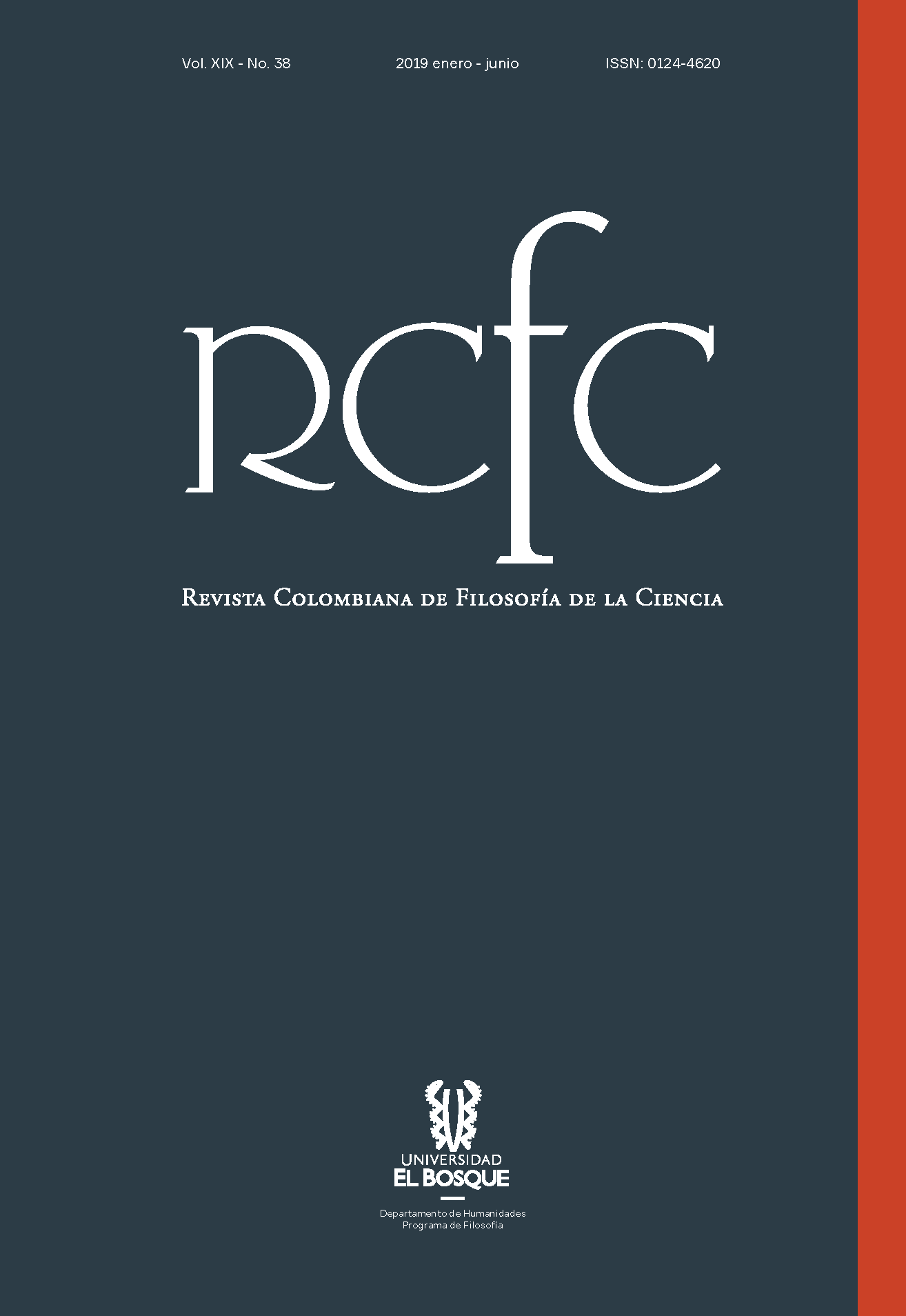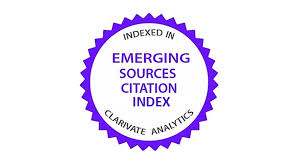Are you a selective-realist dialetheist without knowing it?
DOI:
https://doi.org/10.18270/rcfc.v19i38.2411Keywords:
Selective Realism, contradiction, dialetheia, pessimistic, Meta-InductionAbstract
Selective Realism is the most-common ‘type’ of scientific realism. It groups many diverse approaches to science, theories, and truth, and so, it is very difficult to define it with precision. Yet, there are three elements which, allegedly, suffice for a general characterization of this view, namely: a Non-Miracles Argument motivation, a Pessimistic Meta-Induction motivation and selectivity. I contend that such characterization is not robust enough for pointing out all the elements that selective realists actually share. In particular, I argue that such characterization prevents selective realists from blocking the possibility of true contradictions, dialetheias, even if they are not desirable.
Downloads
References
Biedenharn, Lawrence. “The ‘Sommerfeld Puzzle’ Revisited and Resolved”. Foundations of Physics 13 (1983): 13–34.
Brown, Bryson. “How To Be Realistic about Inconsistency in Science”. Studies in History and Philosophy of Science 21.2 (1990): 281-294.
Brown Laurie, Abraham Pais y Brian Pippard. Twentieth Century Physics. New York, NY: American Institute of Physics Press, 1995.
Chakravartty, Anjan. “Scientific Realism”. The Stanford Encyclopedia of Philosophy (Summer 2017 Edition), 2017a.
_______. “Reflections on New Thinking about Scientific Realism”. Synthese 194.9 (2017b): 3379-3392.
_______. Scientific Ontology: Integrating Naturalized Metaphysics and Voluntarist Epistemology. Oxford University Press, 2017c.
Davey, Kevin. “Can Good Science be Logically Inconsistent?”. Special Issue: Is Science Inconsistent?. Synthese 191.13 (2014): 3009-3026.
Estrada-González, Luis. “On the Possibility of Realist Dialetheism” SATS 15.2 (2014):197-217.
Flores-Gallardo, Adrián E. “Realismo y negación. Una defensa metateórica y pluralista del Principio de No-Contradicción”. Tesis de maestría. UNAM, 2018.
Hempel, Carl. Selected Philosophical Essays. Ed. R. Jeffrey. Nueva York: Cambridge University Press, 2000.
Heisenberg, Werner. “Ausstrahlung von Sommerfelds Werk”. der Gegenwart’ Physikalische Blätter 24 (1968): 530–537.
Lakatos, Imre. “Falsification and the Methodology of Scientific Research Programmes”. Criticism and the Growth of Knowledge. Eds. I. Lakatos y A. Musgrave. Cambridge University Press, 1970. 91-195.
Laudan, Larry. Progress and its Problems: Towards a Theory of Scientific Growth. University of California Press, 1977.
______. “A Confutation of Convergent Realism”. Philosophy of Science 48.1 (1981): 19-49.
Lyons, Timothy D. “Scientific realism and the stratagema de divide et impera”. British Journal for the Philosophy of Science 57.3 (2006): 537-560.
Meheus, Joke. “How to Reason Sensibly yet Naturally from Inconsistencies”. Inconsistency in Science (2002): 151-164.
Pincock, Christopher. “How to Avoid Inconsistent Idealizations.” Synthese 191.13 (2014): 2957–2972.
Priest, Graham. “Inconsistency in the Empirical Sciences”. Inconsistency in Science, Dordrecht: Kluwer Academic Publishers (2002): 119-128.
Psillos, Statis. Scientific Realism: How Science Tracks Truth. London: Routledge, 1999.
Putnam, Hilary. Mathematics, Matter and Method, Cambridge: Cambridge University Press, 1975.
Saatsi, Juha. “Inconsistency and Scientific Realism”. Special Issue: Is Science Inconsistent?. Synthese 191.13 (2014): 2941- 2955.
______. “Replacing recipe realism”. Synthese 194.9 (2017): 3233-3244.
Smith, Joel. “Inconsistency and Scientific Reasoning”. Studies in History and Philosophy of Science 19.4 (1988): 429-445.
Trizio, Emilio. “Scientific Realism and the Contingency of the History of Science”. Science as It Could Have Been: Discussing the Contingency/Inevitability Problem. University of Pittsburg Press, 2015. 129-150.
Vickers, Peter. Understanding Inconsistent Science. Oxford University Press, 2013.
_____. Contemporary Scientific Realism and the 1811 Gill Slit Prediction 2015. <http://www.thebsps.org/2015/06/srpetervickers/>.
______. “Understanding the Selective Realist Defence Against the PMI”. Synthese 194.9 (2016): 3221-3232. <https://doi.org/10.1007/s11229-016-1082-4>.
______. “Disarming the Ultimate Historical Challenge to Scientific Realism”. The British Journal for the Philosophy of Science axy035 (2018) <https://doi.org/10.1093/bjps/axy035>.
Vickers Peter y Juha Saatsi “Miraculous Success?Inconsistency and Untruth in Kirchhoff’s Diffraction Theory”. British Journal of Philosophy of Science 62 (2011): 29–46.
Downloads
Published
How to Cite
Issue
Section
License
Copyright (c) 2019 Revista Colombiana de Filosofía de la Ciencia

This work is licensed under a Creative Commons Attribution-NonCommercial-NoDerivatives 4.0 International License.











